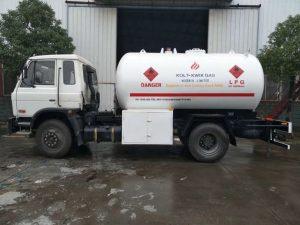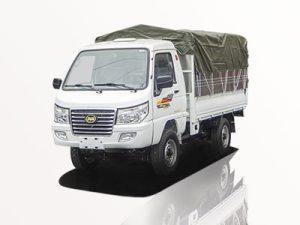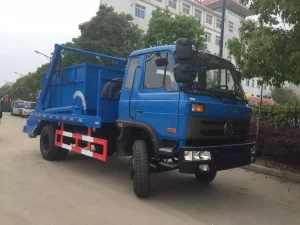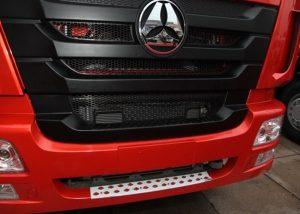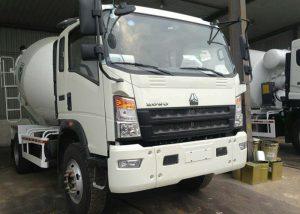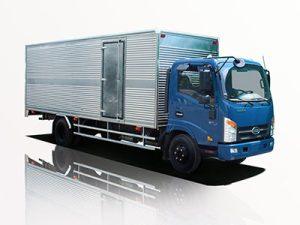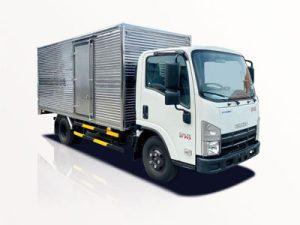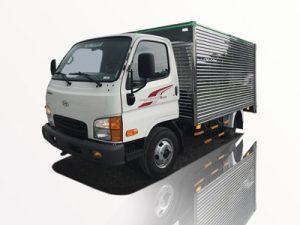Monday to Saturday - 8:00 -17:30
The Ultimate Guide to Mini Trucks: Efficiency and Versatility on Wheels
Mini trucks, also known as kei trucks in Japan, are small, lightweight vehicles designed for a variety of purposes. They have gained immense popularity worldwide due to their compact size, fuel efficiency, and versatility. Whether used for personal transport, business development, or rural farming, mini trucks have become a valuable asset for many. In this comprehensive article, we will explore every aspect of mini trucks, from their features, benefits, and types to buying guides, maintenance tips, and much more.
What is a Mini Truck?
A mini truck is a small-sized, compact truck that offers flexibility in transportation and utility. Originating in Japan, these vehicles typically feature a lightweight design, four-wheel drive, and a payload capacity ranging between 500 to 1,000 pounds. With their unique combination of compact size and practicality, they are ideally suited for urban environments and narrow streets.
The History of Mini Trucks
Mini trucks have their origins in the Japanese kei (light vehicle) automobile category, established in the 1960s. Initially designed for small-scale farmers and businesses, they have evolved over the years and now serve various needs globally.
Key Characteristics of Mini Trucks
- Size: Compact dimensions make them easy to maneuver.
- Fuel Efficiency: Mini trucks generally have excellent fuel economy.
- Payload Capacity: Despite their small size, they can carry significant loads.
- Versatility: Suitable for diverse applications, from delivery services to agriculture.
Why Choose a Mini Truck?
The choice of a mini truck over a conventional vehicle offers numerous benefits, particularly for businesses and individuals in urban areas. Here are some compelling reasons why opting for a mini truck can be advantageous:
Fuel Efficiency
Mini trucks are engineered for efficiency, typically averaging 30-40 miles per gallon. This fuel efficiency can lead to substantial savings, especially for businesses that rely on transportation for goods and services.
Compact Size
The smaller dimensions of mini trucks allow them to navigate through congested urban areas and tight spaces effectively. Parking in difficult spots becomes much easier with a mini truck.
Cost-Effective
Mini trucks are generally less expensive to purchase and maintain than larger vehicles. Their lower insurance rates and fuel costs also contribute to overall savings.
Types of Mini Trucks
Mini trucks come in various types, each designed to serve specific functions. Understanding the key variations can assist you in selecting the right model for your needs.
Standard Mini Trucks
These mini trucks have a basic design and are primarily used for standard transportation of goods. They usually come with a flatbed for easy loading and unloading.
Dump Mini Trucks
Featuring a hydraulic system, dump mini trucks can carry loads and unload them easily by tilting the cargo bed. These are commonly used in construction and landscaping.
Refrigerated Mini Trucks
Equipped with temperature-controlled compartments, refrigerated mini trucks are ideal for transporting perishable goods, such as food and pharmaceuticals.
Custom Mini Trucks
Many manufacturers offer customization options for mini trucks. This can include additional shelving for tools, specialized storage for equipment, or even modifications for specific industries.
Buying Guide: What to Look for in a Mini Truck
Purchasing a mini truck can be a significant investment. Here are some essential tips to guide you through the buying process:
Determine Your Needs
Identify how you intend to use the mini truck. Will it be for personal transport, delivery services, or agricultural use? Knowing your requirements will help narrow down your options.
Check the Payload Capacity
| Type of Use | Recommended Payload Capacity |
|---|---|
| Personal Transport | 500-800 lbs |
| Delivery Services | 800-1,000 lbs |
| Construction | 1,000 lbs+ |
Inspect the Engine and Performance
Look for a reliable engine with a good balance of power and fuel efficiency. Test drive the mini truck to assess its performance under various conditions.
Consider Used vs. New
Both used and new mini trucks have their merits. A new mini truck ensures longevity and includes warranties, while a used one may offer better initial savings.
Maintenance Tips for Mini Trucks
Regular maintenance is crucial to keeping your mini truck in optimal condition. Here are essential maintenance tips to follow:
Regular Oil Changes
Changing the oil and oil filter at recommended intervals is vital for engine health. This will improve performance and extend the life span of your mini truck.
Tire Maintenance
Check the tire pressure and tread depth regularly. Keeping your tires in good condition ensures safety and enhances fuel efficiency.
Brake System Checks
Inspect the brakes periodically. Any signs of wear or insufficient response should be addressed immediately to ensure safety.
Clean and Protect the Body
Regularly wash your mini truck to remove dirt and prevent rusting. Using wax can help protect the paint job from environmental damage.
Practical Examples of Mini Truck Uses
Mini trucks serve various practical purposes across different industries. Here are some examples of how mini trucks can be employed effectively:
Small Business Delivery
Local businesses can leverage mini trucks for delivery services at lower costs compared to larger delivery vans. Their cargo capacity is suitable for transporting groceries, flowers, and hardware.
Agricultural Assistance
Farmers use mini trucks for transporting equipment, tools, livestock feed, and even produce to local markets due to their useful bed and towing capacity.
Moving Supplies and Equipment
From moving furniture to hauling construction supplies, mini trucks have proven to be invaluable for moving services, especially in urban settings.
Safety Features in Mini Trucks
Even though mini trucks are small, safety should always be a priority. Here are some common safety features to ensure safe operation:
Anti-lock Braking System (ABS)
ABS helps maintain steering control during hard braking. This feature is particularly valuable in slippery or wet conditions.
Airbags
Modern mini trucks often include airbags for added protection during collisions, enhancing passenger safety.
Blind Spot Monitoring
This advanced safety feature alerts the driver to vehicles in adjacent lanes that may not be visible in the mirrors, reducing the chances of collisions while changing lanes.
Frequently Asked Questions (FAQ)
1. Are mini trucks legal to drive on public roads?
Yes, mini trucks are legal on public roads in many countries, but they must comply with specific regulations. It’s essential to check local laws and regulations.
2. What is the average cost of a mini truck?
The price of a mini truck can vary significantly based on brand and condition. A new mini truck typically ranges from $10,000 to $20,000, while used models may cost between $3,000 and $10,000.
3. Can I customize a mini truck for my business?
Yes, many manufacturers offer customization options, including shelving, refrigeration units, and specialized interiors for various business requirements.
4. How do I find parts for a mini truck?
Parts for mini trucks can typically be found at authorized dealerships, auto parts stores, or online retailers specializing in mini truck accessories and components.
5. What maintenance does a mini truck require compared to a standard truck?
Mini trucks generally require less maintenance due to their smaller engines and simpler mechanics. Routine checks on the oil, tires, brakes, and other essential systems are crucial.
6. Can mini trucks be used off-road?
Many mini trucks come with four-wheel-drive capabilities, making them suitable for light off-road use. However, heavy-duty off-roading may require specialized vehicles.


